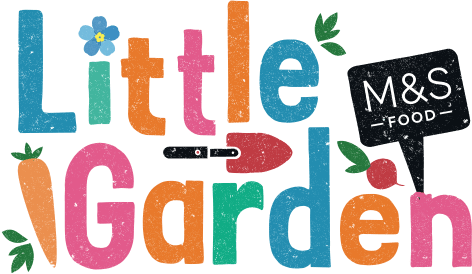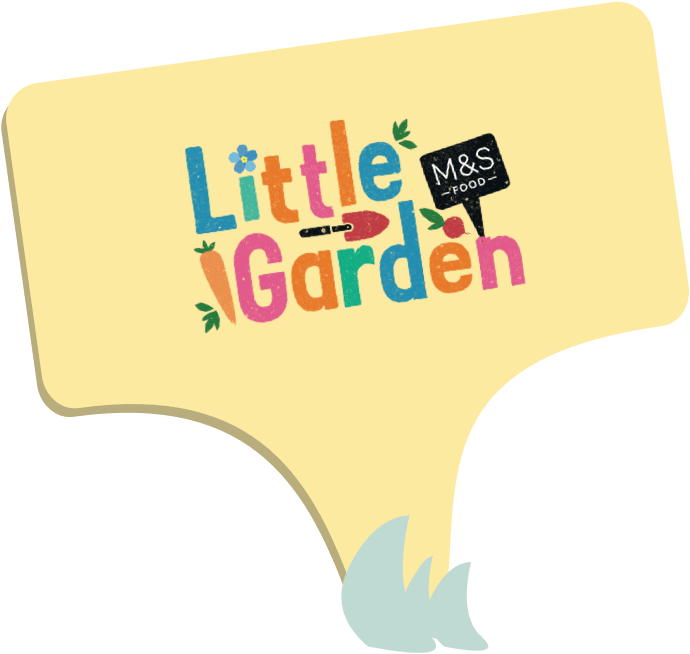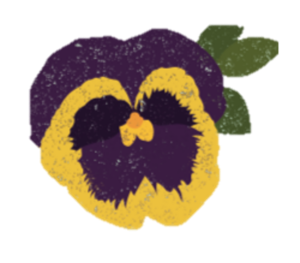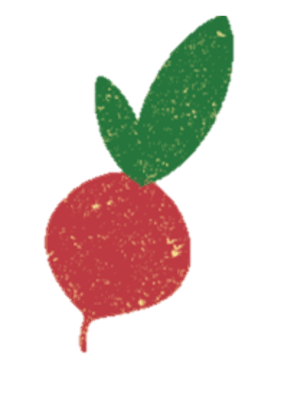Here are the most frequently asked questions about M&S Little Garden
Fancy growing your own lettuce or carrots? From 26 February, customers spending €25 or more in M&S Foodhalls will receive a free M&S Little Garden seedling kit. With 12 seeds to collect and grow – ranging from veg and herbs to flowers – Little Garden is fun for little ones (aged 36 months+) and all the family to enjoy during spring.
You’ll receive a free M&S Little Garden seedling kit for every €25 you spend (after all discounts) at M&S Foodhalls. So, if you spend €50, you’ll receive two seedling kits; €75 gets you three, and so on. Don’t forget to collect your seedling kit if you’re using a self-checkout till – they will be displayed near the checkout.
All M&S Foodhalls in England, Wales, Scotland, Northern Ireland and the Republic of Ireland will offer a Little Garden seedling kit when you spend €25 or more. Franchise stores, like travel hubs, hospitals and petrol stations, are excluded from the campaign.
We’re planning to run M&S Little Garden until mid-April or while stocks last. But be quick – once they’re gone, they’re gone!
No – all you need to do is spend a minimum of €25 in one transaction to receive a Little Garden seedling kit.
We also have an exciting range of mini accessories to help your little ones play with their Little Garden seedling kits, including a watering can and garden tool set from just €4.
Nope, it’s easy peasy! Simply visit your nearest M&S Foodhall to start collecting.
Yes – we have an exciting range of mini accessories to help your little ones play with their Little Garden seedling kits, including a Little Garden watering can and garden tool set, from just €4.
Customers shopping in M&S Foodhalls will receive a free Little Garden seedling kit, including collections in store. Gift cards, online purchases (excluding food), clothing, homeware and M&S Café purchases are not included.
Unfortunately, Little Garden is an M&S Food promotion, so it will not be applied on clothing or homeware purchases. Don’t forget to claim your Little Garden seedling kit next time you visit our Foodhalls.
No – our Little Garden seedling kits hold no cash value. But if you don’t fancy collecting them, just let our colleagues know.
We want to make Little Garden as fun and fair as possible, so each Little Garden seedling kit comes in a concealed cardboard pack for a surprise each time!
No, the seedlings are included in each of the three colours so it’s completely random which variety you will receive.
Yes – all our vegetable and herb seedling kits are made to be grown and eaten! We wouldn’t recommend eating the flowers, but they are fully safe to consume if the little ones do happen to eat them.
We have lots of fun games to keep your kids entertained – please see our play page here.
Little Garden is a fun activity for families to learn about growing their own plants – from the power of nature, how plants grow, what can be home grown and cooking with the fresh herbs and vegetables.
Each Little Garden seedling kit includes:
- A pot – a small, fully biodegradable seedling pot to plant the seeds into
- A seed mat – an easy-to-use mat with the seeds readily planted on to biodegradable paper
- A soil tablet – brown dehydrated soil pressed into a compact round shape. When you mix it with water, it expands to make normal soil
- A seed label – a label that will help kids identify what’s growing in each pot
Yes – customers spending €25 or more in M&S Foodhalls will receive a free M&S Little Garden seedling kit. With 12 seeds to collect and grow – ranging from veg and herbs to flowers – Little Garden is fun for little ones (aged 36 months+) and all the family to enjoy during spring.
All our Little Garden seedling kits have been independently tested to ensure they’re safe for children over 36 months, but we would always recommend keeping a close eye on your little ones when using the Little Garden kits and merchandise.
We’ve worked with suppliers globally to make our Little Garden merchandise. These products are all designed to last and can be used beyond playing with M&S Little Garden seedling kits.
Little Garden accessories are available in store only while stocks last.
We’ve worked hard to ensure our Little Garden campaign is made as sustainably as possible – for example, the pot is made from biodegradable wood pulp and the soil tablet is made from coconut husk. The cardboard sleeve of each seedling kit is FSC certified.
No, these aren't organic. However, like all M&S fruit and veg, we aim to source our Little Garden seeds as sustainably as possible.
With the right care and attention, the seeds should start to sprout within a couple of weeks of being planted, though some may take longer. You can find the information on how and when to repot your seedlings here
Yes, we’ve made it as easy as possible to plant our Little Garden seedling kits! Simply fill the pot with the soil until it’s almost full and place the seed mat on top. Then fill the pot with the rest of the soil to fully cover the seed mat. Top tip: don’t remove the seeds from the seed mat, as this helps them to grow!
For the best results, it’s recommended that you plant the seeds in the pot first until they germinate and sprout. When the plant is big enough, you can repot it providing the conditions are warm enough outside. You can replant it in the garden, but don’t plant it anywhere that’s too cold or windy. And remember, your plants may receive some unexpected visitors outside like snails – so please take necessary steps to protect the plants! You can find full information on how to care for your Little Garden seedling kit here.
While the seeds are sprouting into little plants, water once a day. But remember, it’s better not to over or under-water! You can find full information on how to care for your Little Garden seedling kit here.
Nope, it’s all in the kit! If you repot or replant the plant, it’s worth using compost or plant food.
You can find the right time to plant each seed variety here and on the cardboard pack. Most of the seeds should have sprouted into plants that are a few centimetres high and have some leaves before you need to repot or replant them. Always keep an eye on the roots, as they may outgrow the little pot.
Once the seedlings have sprouted and have outgrown the little pots, they should be replanted in bigger pots or, if it’s warm enough, in your garden.
Source a bigger pot with holes in the bottom for drainage and prepare a potting mix by loosening and slightly wetting the soil. Create a hole in the soil about 5cm deep and place the entire contents of the little pot inside, ensuring it’s completely buried under the soil. If you’re planting the seedling only, dig a 3cm deep hole and handle with care. If you’re planting multiple plants, leave enough distance between them.
We recommend waiting until May or when the weather is warmer outside. Find a spot that’s not too exposed to the sunlight. Prepare the soil by loosening and slightly wetting it and dig a long hole about 5cm deep. Place the entire contents of the little pot including the seedling in the hole and make sure the original little pot is completely buried under the soil. If removing the seedling from the pot, dig a 3cm deep hole and handle with care. If planting multiple plants, leave enough distance between them.
Yes, but we recommend waiting until May or when it is warmer outside.
As long as it has drainage holes, it’s perfectly fine to use!
Most seeds should start to sprout within 1-2 weeks of being planted, though some may take longer. If you find your seeds aren’t germinating, it could be because:
- The soil is too dry or too wet
- The seeds weren’t covered in enough soil
- The soil was packed down too tightly
- The pots were put somewhere too windy, too cold, or too hot
Mould could be caused by the moisture in the air but there’s no need to worry – it won’t cause any harm! Simply wipe it away with a tissue.
Oh dear! There’s a chance the plant has been over or under-watered, or it may be getting too much or not enough light. Try adjusting your care.
We suggest inspecting the plants to try and find the pests. If the issue persists, we recommend speaking to a gardening expert (like a local garden centre) about other ways to protect your plants.














